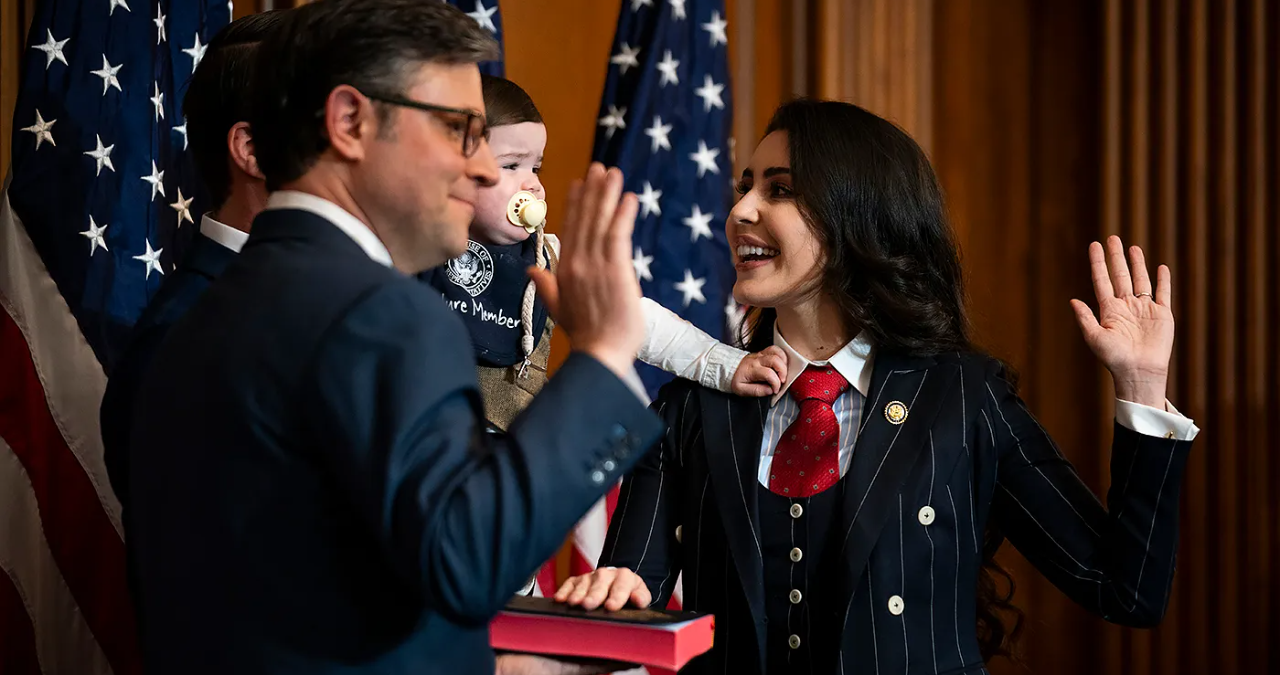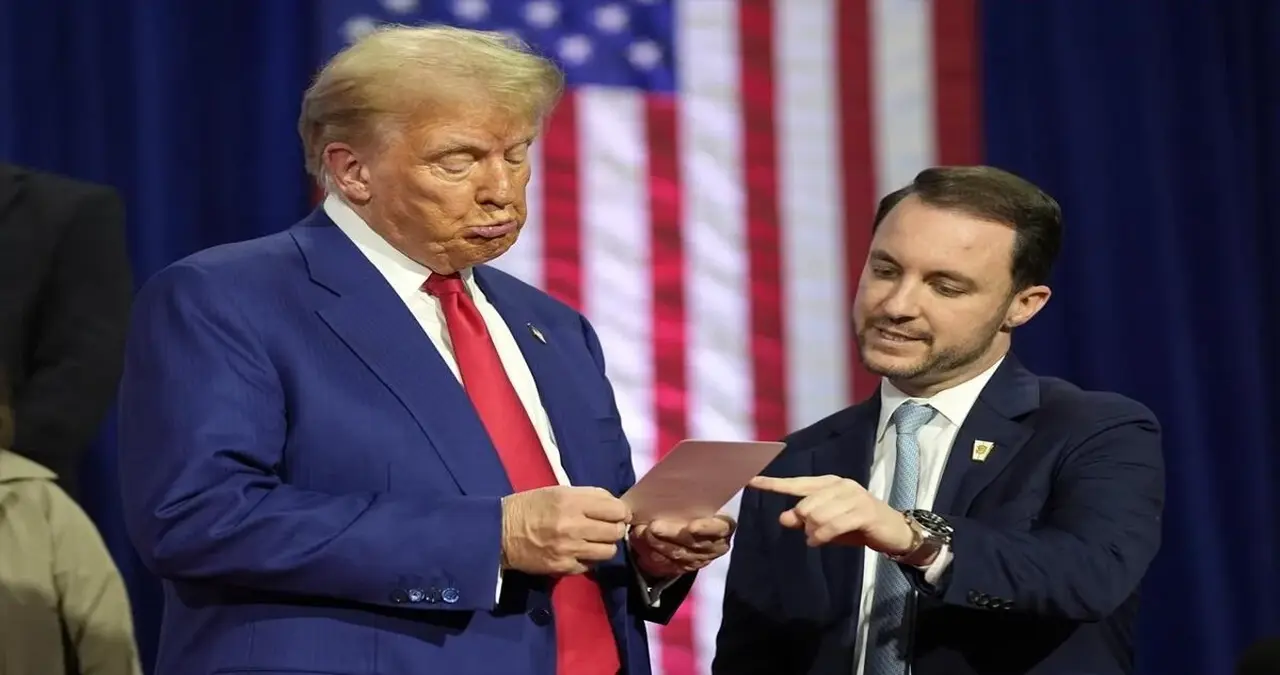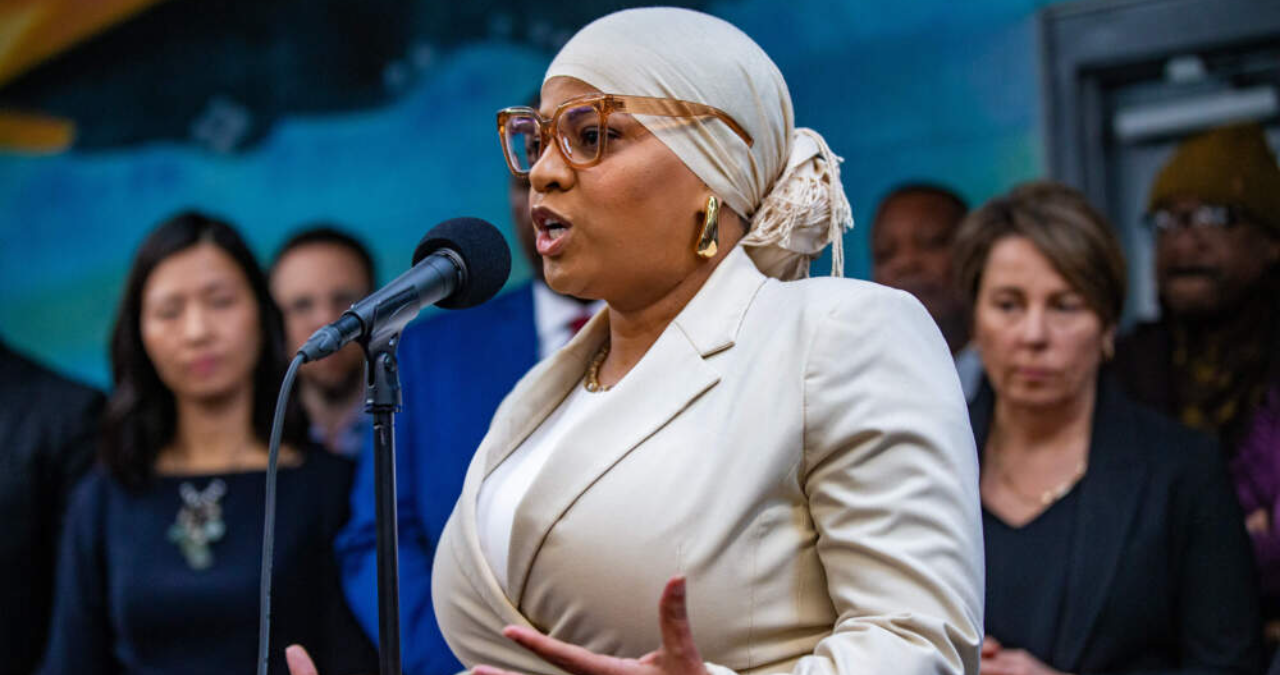The parental proxy voting deal by Johnson and Luna sparks debate across political circles. Parental Proxy Voting Deal Johnson and Luna Explore the implications, criticisms, and what this proposal means for families and democracy.
Introduction: What Is the Parental Proxy Voting Deal?
If you’ve been following political news lately, you’ve probably come across the term “parental proxy voting deal Johnson Luna.” At first glance, it sounds like just another dry policy initiative. But once you dig deeper, you’ll find that this proposal has stirred up a whirlwind of conversation across party lines. Whether you’re a seasoned political analyst or a casual reader, this topic deserves your attention.
So, what is the parental proxy voting deal? Simply put, it’s a policy idea put forth by Representatives Mike Johnson and Anna Paulina Luna that would allow parents to cast proxy votes for their underage children. That means a parent wouldn’t just vote for themselves—they could also cast an additional vote (or more, depending on the number of their children) representing the interests of their kids who aren’t yet of voting age.
At face value, this may seem like an empowering move for families and a way to encourage more engagement in civic matters. But once we begin to dissect the intricacies of this proposal, things get a bit murkier. Is this democratic reform or a slippery slope into representation imbalance?
Let’s break down the Johnson and Luna parental proxy voting deal and understand why it’s making such waves.
The Origin of the Johnson-Luna Proposal
Representative Mike Johnson, now Speaker of the House, has long been a proponent of traditional family values. His ally in this policy proposal, Representative Anna Paulina Luna, shares a similarly conservative viewpoint and has championed causes related to family integrity and parental rights. So, it’s no surprise that the two would collaborate on something like the parental proxy voting deal.
The idea didn’t just spring out of nowhere. Johnson and Luna claim inspiration from ongoing global debates around democratic participation, especially in countries with declining birth rates and aging populations. In their eyes, children—who will eventually be affected by the policies we enact today—deserve some form of representation. Their solution? Let parents vote on their behalf.
While the sentiment might sound noble, critics are quick to point out the logistical and ethical challenges involved. Still, Johnson and Luna are pushing ahead with this initiative, framing it as a groundbreaking approach to strengthen democracy and family cohesion.
What the Deal Actually Proposes
The parental proxy voting deal isn’t just a vague concept—it comes with specifics. According to early drafts, each parent could cast one additional vote per minor child in their household. This would be done during federal elections, and possibly trickle down to state and local levels depending on jurisdiction.
The Johnson-Luna draft includes clauses on verification to prevent abuse—such as requiring proof of guardianship and the child’s age. There’s also a push to make this data part of a secure voter registry, reducing chances of fraud. But even with these safeguards, many questions remain.
Would this give larger families more political power? Would it lead to certain political ideologies gaining an unfair advantage, especially in traditionally conservative or religious demographics that tend to have more children? These are real concerns that critics raise—and they’re not unfounded.
Supporters argue that children are the most underrepresented demographic in any democracy. The proxy vote would give them a voice, however indirect. According to Johnson and Luna, this mechanism would balance out the aging electorate and bring more future-focused policymaking to the forefront.
Why It’s Sparking Controversy
The Johnson Luna parental proxy voting deal has become a lightning rod for political discourse. Some praise it as innovative, while others slam it as undemocratic. The controversy stems from a few key concerns.
First, the imbalance of influence. If parents can vote on behalf of their children, families with more children suddenly have more sway in elections. This creates a tiered system where single individuals or childless couples have relatively less voting power. That’s a major red flag for democratic equality.
Second, there’s the question of representation. Children can’t express political preferences, so who decides what’s best for them? Is it safe to assume that a parent always represents the best interest of their child? Many argue that this could easily be abused for partisan gain rather than genuine concern for future generations.
Finally, critics worry about the precedent it sets. If we start granting proxy votes for children, what’s next? Could there be calls for proxy votes for other non-voting citizens like immigrants, prisoners, or even pets? It sounds absurd, but in the realm of politics, slippery slopes can become real very quickly.
Supporters’ Arguments: Why Some Say It’s a Good Idea
Despite the backlash, there’s a vocal group of supporters for the parental proxy voting deal. Johnson and Luna, along with a few other lawmakers and political activists, argue that the policy is a long-overdue correction in democratic representation.
One major argument is the idea of future-impact accountability. Policies made today—from climate change to national debt—will primarily affect the younger generation. Yet, they have no say in electing the officials making these decisions. The parental proxy vote gives them a metaphorical seat at the table.
Additionally, supporters claim this initiative could help reinvigorate family values in politics. By giving families more collective voting power, lawmakers would be more likely to craft legislation with children and families in mind. In their eyes, this would counteract the short-termism that plagues much of modern governance.
There’s also a belief that this policy could improve voter turnout. If parents know they’re voting not just for themselves but for their children too, they might be more motivated to show up at the polls. This could be particularly impactful in communities where civic engagement is typically low.
Legal and Constitutional Challenges
The parental proxy voting deal is not without its legal hurdles. Critics argue that the concept may violate the Equal Protection Clause under the Fourteenth Amendment. Parental Proxy Voting Deal Johnson and Luna The idea of weighting one person’s vote more heavily based on their family size seems, to many legal scholars, inherently unequal.
Furthermore, the Voting Rights Act of 1965 ensures equal access and weight of every individual’s vote. Introducing proxy votes could be interpreted as diluting the principle of “one person, one vote.” Legal analysts suggest that if the proposal were passed into law, it would face immediate and likely successful legal challenges in the courts.
Johnson and Luna have anticipated some of this and included language in the proposal that attempts to sidestep constitutional conflicts by framing the children’s votes as independent—just cast through their legal guardians. Whether that’ll hold up in court is a different story.
International Comparisons: Is Anyone Else Doing This?
Interestingly, parental proxy voting isn’t a completely new idea on the global stage. Some countries have flirted with similar concepts, though not always with great success.
In Hungary, for instance, there have been discussions about giving families with more children additional voting power. The idea was ultimately shelved amid concerns about democratic fairness. Similarly, in France and Germany, there have been grassroots efforts to introduce family-weighted voting, but none have made it into law.
These examples serve as both a cautionary tale and a guide. While it’s clear that the desire to include youth perspectives in governance is shared across nations, the path to implementing it fairly and legally remains murky. Johnson and Luna are walking a very fine line—one that hasn’t been successfully tread by any country so far.
Potential Impact on Upcoming Elections

If this proposal were somehow fast-tracked and enacted before a major election, it could dramatically alter electoral dynamics. States with higher birth rates or family-friendly policies might suddenly become swing states. Political strategies would shift overnight.
Campaigns could start targeting “family blocs” instead of just demographics like seniors or college students. Politicians might prioritize school funding, child tax credits, or pediatric healthcare more than ever before. The trickle-down effect could be profound.
Of course, this is all speculative. The Johnson-Luna proposal is still in its early stages and hasn’t yet cleared even the first major legislative hurdle. But even the possibility of it passing has political strategists running numbers and preparing for a new electoral landscape.
Public Opinion and Media Reaction
The media landscape is sharply divided on the parental proxy voting deal. Conservative outlets have mostly hailed it as a pro-family, pro-democracy initiative. Meanwhile, liberal-leaning publications have derided it as an overt attempt to manipulate electoral outcomes in favor of the right.
Public opinion mirrors this divide. A recent informal poll showed that while many parents liked the idea in theory, they expressed doubts about its fairness and practicality. Non-parents, predictably, were overwhelmingly against it.
In town halls and online forums, the debate rages on. Some people believe this is the innovation democracy needs, while others fear it’s a veiled power grab. Regardless of where you stand, it’s clear that the Johnson and Luna parental proxy voting deal is one of the most talked-about political ideas of the year.
Table: Pros and Cons of the Parental Proxy Voting Deal
| Pros | Cons |
|---|---|
| Gives children a voice in politics | May violate equal voting rights |
| Encourages family-friendly policies | Unfair advantage for large families |
| Could boost voter turnout | Complex legal and logistical issues |
| Promotes long-term policy thinking | Potential for political manipulation |
Quotes on the Debate
“We are simply giving a voice to those who will live with the consequences of today’s decisions for decades to come.” — Rep. Mike Johnson
“This undermines the core of democratic equality. One person, one vote must remain a foundational principle.” — ACLU Legal Director
FAQs About the Parental Proxy Voting Deal
What is the parental proxy voting deal by Johnson and Luna? It’s a legislative proposal that would allow parents to cast additional votes on behalf of their underage children in federal elections.
Is this deal currently a law? No, it’s still in the proposal phase and has not passed any legislative body.
Why are Johnson and Luna proposing this? They believe it will give children representation and promote family values in politics.
What are the main criticisms? Critics argue it violates the principle of equal voting rights and gives undue political advantage to larger families.
Has any other country implemented this? No country has successfully implemented such a system, though some have considered it.
Could it impact elections if passed? Yes, it could significantly shift voting power and change how campaigns are run.
Is the proposal constitutional? That’s highly debatable and would likely be challenged in court.
Conclusion: What’s Next for Johnson, Luna, and the Proxy Voting Debate?
The parental proxy voting deal spearheaded by Johnson and Luna is far from a done deal, but it has already made a huge impact in political discourse. Whether seen as a bold new direction or a dangerous overreach, it forces us to reconsider what democratic representation means in today’s complex society.
As debates continue, one thing is clear—this proposal is pushing boundaries, and it has the potential to reshape American politics for better or worse. Keep your eyes on this one.




